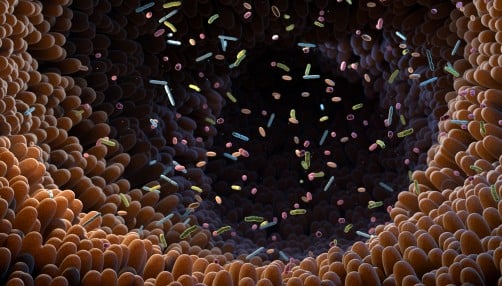BREAKING: A groundbreaking study from UCLA Health reveals that a child’s gut microbiome at age 2 may significantly influence their emotional health, potentially increasing the risk of depression and anxiety by middle childhood. Published today in Nature Communications, this research underscores the urgent need to consider gut health as a factor in mental wellness.
The study identifies specific bacteria—those in the Clostridiales order and Lachnospiraceae family—that correlate with heightened internalizing symptoms, which include anxiety and depression. The implications are profound: if unaddressed, these symptoms can evolve into more serious mental health issues as children grow into adolescence and adulthood.
Researchers analyzed data from the Growing Up in Singapore Towards Healthy Outcomes (GUSTO) study, focusing on 55 participants. They discovered that the gut microbiome’s composition at age 2 was linked to variations in brain connectivity patterns observed in MRI scans at age 6, which in turn correlated with emotional problems reported at age 7.5. This marks a significant shift from previous research primarily focused on infants and toddlers.
Dr. Bridget Callaghan, the study’s senior author and associate professor at UCLA, emphasizes the importance of these findings: “By linking early-life microbiome patterns with brain connectivity and later symptoms of anxiety and depression, our study provides early evidence that gut microbes could help shape mental health during the critical school-age years.”
This research highlights the pressing need for further investigation into how gut bacteria may influence mental health. Callaghan notes that some microbes might be particularly sensitive to stressors, explaining their association with the development of internalizing symptoms later in childhood.
Future studies will seek to identify which specific bacteria within these larger groups are responsible for these trends. Callaghan suggests that potential interventions, such as dietary changes or probiotics, could be explored to modify gut health, thereby impacting emotional well-being.
This study is a collaborative effort involving the Agency for Science, Technology and Research’s (A*STAR) Institute for Human Development and Potential, KK Women’s and Children’s Hospital, and the National University of Singapore Yong Loo Lin School of Medicine. The urgency of these findings cannot be overstated, as they prompt a re-evaluation of how early gut health may forecast emotional challenges later in life.
As this research gains attention, it opens the door for parents, healthcare professionals, and educators to consider the gut-brain connection as a vital component of child development. Stay tuned for more updates as this story develops.







